|
|
|
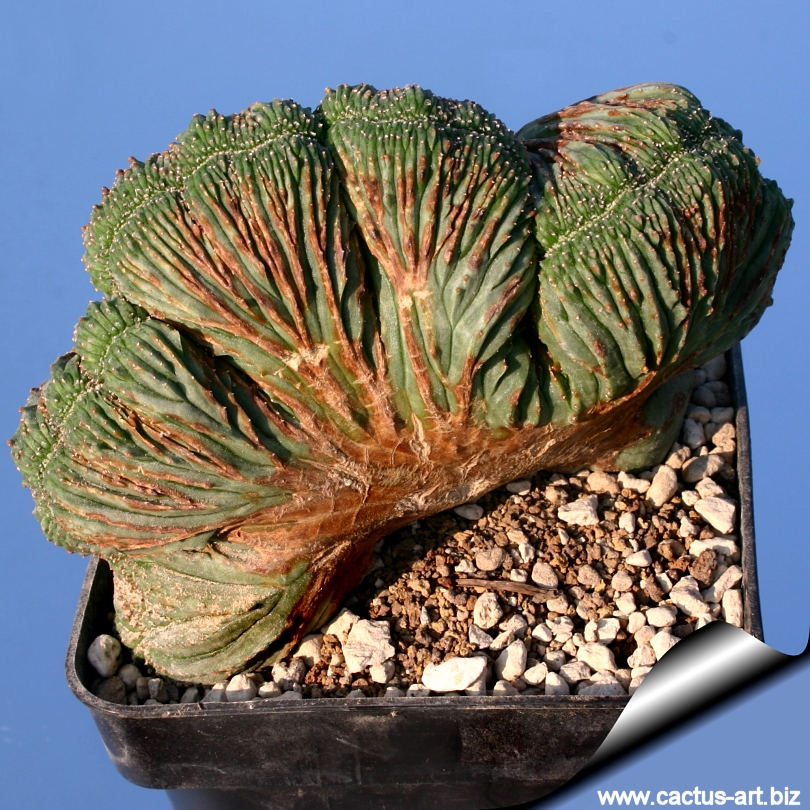
Euphorbia obesa forma cristata.
|
Description: The well known standard form of E. obesa is a single-stemmed
globular or shortly cylindrica plant that
sometimes
'branch' or sucker, creating very odd looking clusters of spheres. It can
grow to 20 cm in height with a diameter of 9 cm. The rare crested form
is a very different fascinating plant.
|
|

Photo
Photo &
©
copyright
by Irwin Lightstone
http://www.radiantimagesphotography.net
This is a fascinating and rare plant
with strong dark green fan-shaped crested branches forming a snaky ridge
or crowded cluster. |

|
|
 |
|
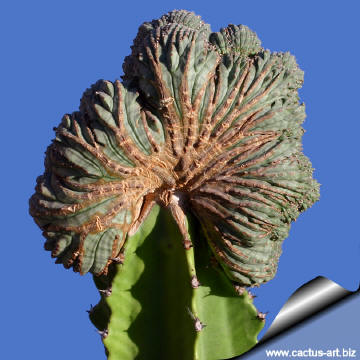 |
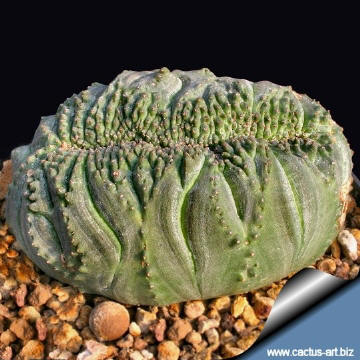 |
|
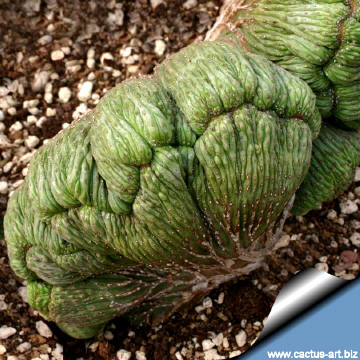 |
 |
|
Reproduction: It is
usually propagated by cuttings or graft. This plant can also propagated
by seeds (the seed from crested plants produce crested seedling with a
relatively high frequency) The seedlings and cuttings grow without any
difficulty on their own roots.
It is recommend taking Euphorbia cuttings in Spring/Summer when the
plant is growing so that they have a better chance of success. They key
is heat & good air circulation. These cuttings should be dipped in
Hormone powder (but it is not needed) and left for a period of 3-4 weeks
to callous. Then pot the cutting and don't water ( or kept slightly
moist) until rooted. These will root just fine, if you can put the pot
outside in the summer, or put pot on a heating pad. |
|


Advertising
|
|
|
|
Family:
Euphorbiaceae
Scientific name: Euphorbia obesa
Hook.
f. forma cristata
Common Names include: Sea Urchin, Baseball,
Vetmensie
Conservation status: Listed in
CITES appendix 2.
Origin: Euphorbia obesa is an
endemic species to the Northern Cape region of South Africa. The
crested forms are
of garden origin (Nursery
produced cultivars) |
|
|
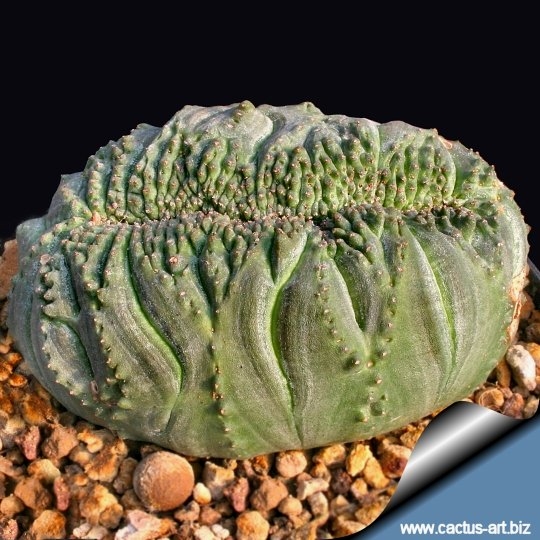
 |
The
cause of cresting: The cause of cresting is not fully explained, biologists
disagree as to why some plant grow in this unusual form. Some
speculate that it is a genetic mutation. Others say it is the result of
a lightning strike or freeze damage, but whatever the stimulus, the
growth point of the stem has switched from a geometric point, to a line,
which folds and undulates as the crest expands. Crested Euphorbia are
quite rare, cresting occurs naturally and can be encountered in many
other species.
|
|
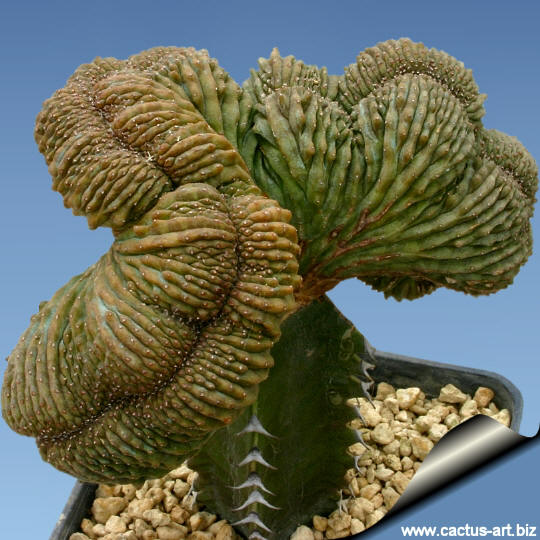
Culture: Needs bright light to partial shade for best appearance. It responds well to warmth, with its active growth period in
the late spring and summer months. Water thoroughly when soil is dry to
the touch during active growing season (more than once a week during hot
weather) In the winter months, waterigs should be suspended or
restricted to once over the winter. The most common failure in growing
this plant is over watering, especially during the winter months. Likes
porous soil with adequate drainage.
Photo of conspecific taxa, varieties, forms and cultivars of
Euphorbia obesa.
|
|